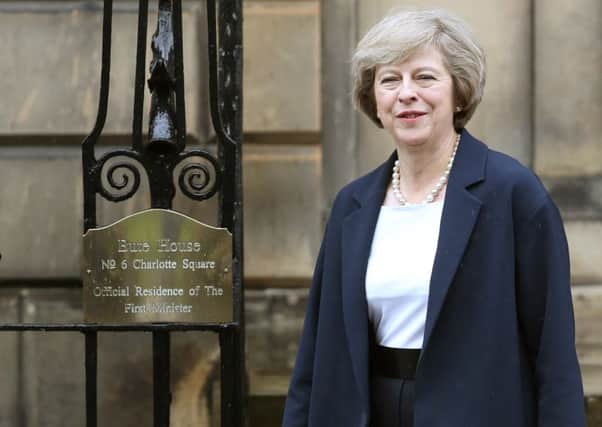Alistair Carmichael: Theresa May's liberal rhetoric a surprise


For many people there were three main reasons for being pleased to see Theresa May enter No 10 Downing Street last week. Firstly she was not Boris Johnston; secondly she was not Michael Gove and thirdly she was not Andrea Leadsom. As a father, I felt it could have been worse. Mrs May, a vicar’s daughter we are told, delivered a little homily for the benefit of the world’s media outside her new residence. The rhetoric was good. I know from five years in coalition government that getting some Conservatives even to acknowledge the inequalities of modern life can be difficult. Here we had a Conservative prime minister not just acknowledging them but promising to tackle them.
It was only after she had gone inside No 10 that things started to go wrong. The appointment of Boris Johnson as Foreign Secretary was bizarre. Giving that job to a man who is still happy to use terms like “pickaninny” was greeted with astonishment and derision. It may be that this is a clever piece of political positioning but to the outside world it just looks absurd. Not many people in Westminster will offer you good odds on him lasting the whole parliament.
Advertisement
Hide AdAdvertisement
Hide AdTime will tell whether or not Mrs May will lead a government where the actions will match the early rhetoric. I hope that she does. The problems of inequality are deep-rooted and complex. They produce a Britain ill at ease with itself, where people feel they have so little to lose that they are prepared to vote for Brexit, an act of political self-harm, just to get our political classes to pay them some attention.
The Prime Minister’s record in government thus far is as mixed as is the picture she has already presented of her premiership. As Home Secretary she was an “early adopter” of the cause of equal marriage when my colleague Lynne Featherstone started to promote the policy inside government. Likewise her work on tackling modern slavery and violence against women has been positive and a credit to her.
On the other side of the equation, however, there is a different story. Her time at the Home Office has been marked by the onward march of authoritarian and intrusive government and an ugly rhetoric on immigration. This is the woman who sent a fleet of vans out to some of the most ethnically mixed parts of the country with posters on the side warning anyone who is in our country illegally that they were going to be found and deported. It was dog whistle politics of the worst kind.
In 2012 when her department produced the Data Communications Bill, it was quickly (and rightly) dubbed the snoopers’ charter. It generated weeks of hand-to-hand combat between the Home Office and the Office of the Deputy Prime Minister, Nick Clegg. Ultimately the bill that went through parliament was shorn of its illiberal excesses but after the 2015 election and freed to the need to accommodate those pesky Liberal Democrats, one of her first priorities was to bring back a new Investigatory Powers Bill with most of the same features.
As a colleague in government, Theresa May was not exactly an intuitive coalitionist but she was someone with whom you always knew where you stood. Lobby journalists will tell you that she can make a good and engaging dinner companion – as long as it is the “good Theresa” who turns up. If it is the “bad Theresa” who shows, then, they say, you go straight to the main course then skip the pudding. The next few weeks should let us see if it is the good or the bad Theresa who is living at No 10. • Alistair Carmichael is MP for Orkney and Shetland and a former Secretary of State for Scotland